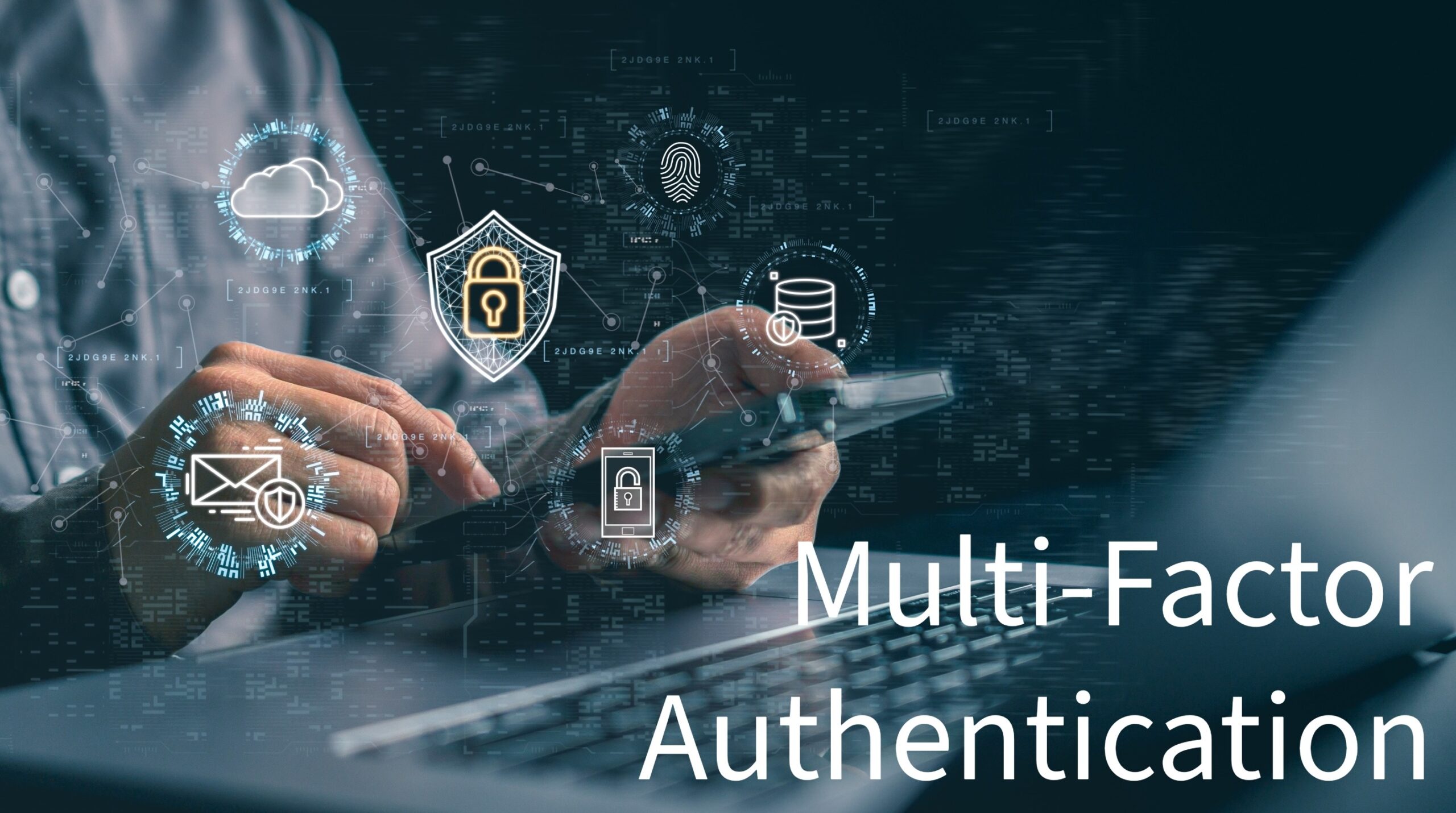In the current digital age, passwords are no longer enough to safeguard your essential data and digital resources. Whether dealing with financial accounts, company data, or individual information, adopting more rigorous security methods is imperative, especially with cyber criminals and hackers constantly evolving their tactics and tools. Multi-Factor Authentication (MFA) provides a straightforward yet heightened defence beyond the usual passwords, protecting our digital assets against potential intrusions.
“MFA is often perceived as daunting, but in reality, it’s quite straightforward.”
At its core, MFA is a robust security protocol that requires users to verify their identity through two or more independent sources when accessing accounts on systems like your Bank Account, Personal or Work Email, LinkedIn or even Facebook and Instagram. Instead of merely entering a password, users might also have to input a unique code sent to their mobile phone or an authentication app. This layering ensures that even if one verification is compromised, malicious actors still have other hurdles to overcome before getting to your data.
Executives are higher targets! Cybercriminals increasingly aim their sights on high-profile targets. The logic is simple: why hack multiple accounts for small gains when you can target a single executive and get access to a treasure trove of valuable data or financial resources? As leaders, your digital profiles and access rights are prime targets. Thus, a proactive approach to security isn’t just recommended; it’s imperative.
MFA goes beyond merely deterring potential cyber threats:
- Enhanced Trust: Prioritizing security with MFA boosts your credibility among stakeholders, employees, and partners. You may be viewed as more reliable and committed to safeguarding valuable data.
- Cost Efficiency in IT: Implementing MFA translates to fewer resources spent on managing the aftermath of security breaches, both in terms of money and time.
- Meeting Regulatory Standards: As numerous industries tighten their security standards, integrating MFA ensures that companies align with these heightened protocols and stay compliant.
Setting up Multi-Factor Authentication (MFA) is often perceived as daunting, but in reality, it’s quite straightforward. Most platforms and services that offer MFA have user-friendly interfaces and step-by-step guides to walk users through the process. Typically, it involves registering a secondary device, like a mobile phone, and then confirming its legitimacy through a one-time code or push notification. Once established, the system remembers the setup preferences, making subsequent logins quick and simple. In essence, the short time investment made during the initial setup pays dividends in bolstered security and peace of mind for the long haul.
Here are three current MFA software solutions I have personally tried and tested. Authy is the free tool I continue to use today as it’s very easy to use and available across all my devices.
- Authy (by Twilio): Authy stands out for its cross-platform capabilities, allowing users to access their MFA codes from multiple devices. Known for its robust security and user-friendly design, it’s a preferred choice for many looking for both efficiency and protection.
- Microsoft Authenticator: A solution from the tech giant Microsoft, this MFA solution integrates seamlessly with other Microsoft products and services. It’s easy to set up, supports push notifications for approvals, and offers the reliability expected from a major industry player. Many organizations I’ve worked with rely on MS Authenticator to keep their company accounts safe.
- Duo Security: Now a part of Cisco, it’s often hailed as one of the top MFA solutions. It offers a user-friendly interface, a broad range of integration options, and a suite of security features that go beyond just MFA, ensuring comprehensive protection for enterprises of all sizes.
It’s crucial to note that the best MFA software for a given organization or individual often depends on specific needs, existing infrastructure, and personal or corporate preferences. Always consider a range of reviews, trial periods, and other expert opinions when making a selection.
In today’s digital era, with ever-increasing Cyber threats, security should never be an afterthought, especially for executives who are often prime targets. MFA offers a robust yet easy-to-implement solution to enhance digital security significantly. As leaders, let’s not just set the trend but also lead by example. Embrace MFA, ensure your safety, and fortify your organization against cyber threats.
